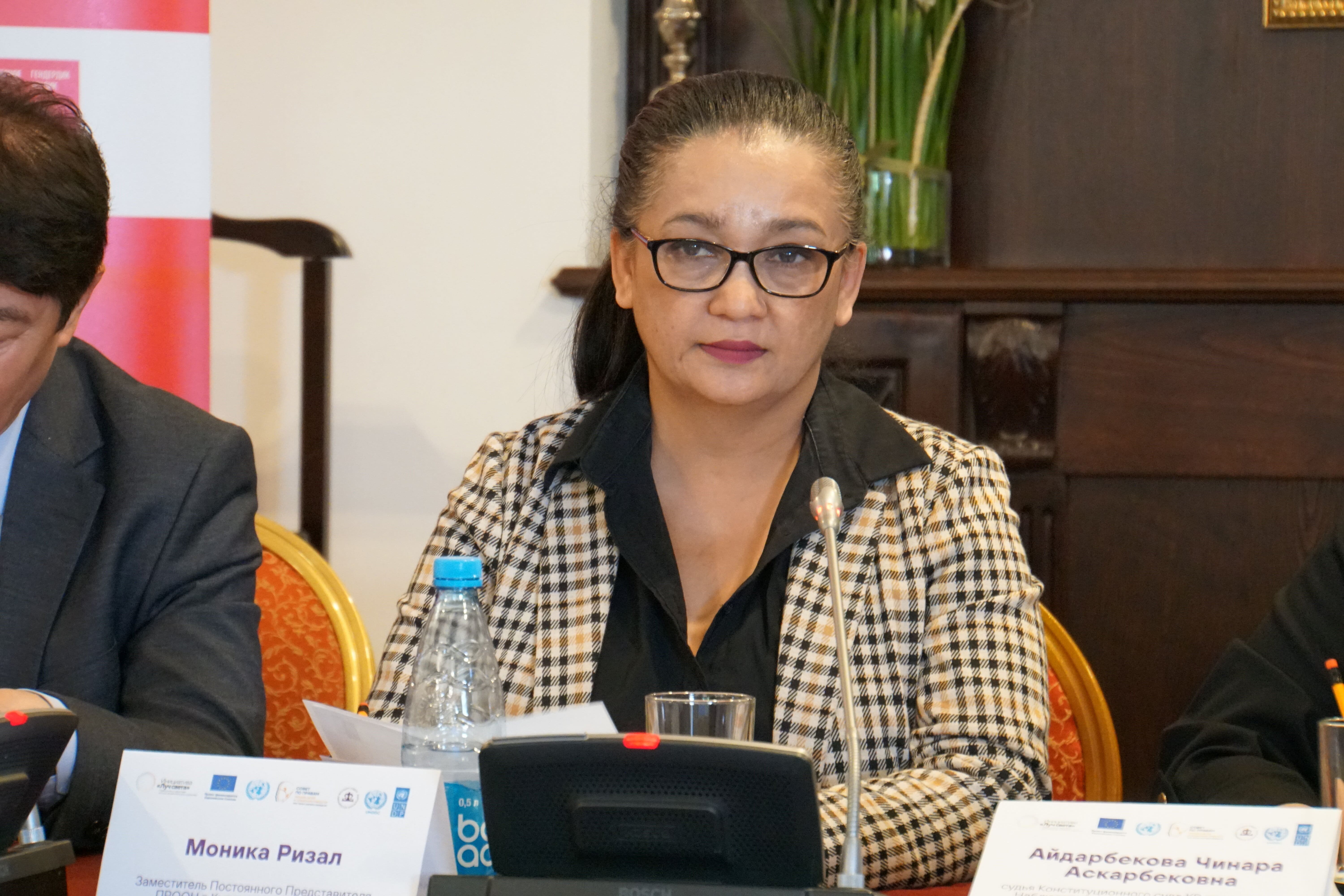Speech by Ms. Monica Rijal, Deputy Resident Representative, UNDP Kyrgyz Republic
Monitoring and evaluating systems for gender-sensitive services to SGBV survivors
May 26, 2023

Dear parners,
Our main objective today is to present and discuss the developed key indicators for conducting gender self-evaluation and external audits in the institutions responsible for safeguarding and protection against sexual and gender-based violence (SGBV).
We believe that institutionalization of these indicators through the introduction of internal regulations will improve gender-sensitive and survivor-centric practices in law enforcement, justice, and legal sectors to address violence against women and girls in the Kyrgyz Republic.
We commend the Ministry of Internal Affairs, the Supreme Court of the Kyrgyz Republic, the Office of the General Prosecutor, and the Bar (Advocatura), for their vital efforts to improve the effectiveness of the criminal justice system in dealing with cases of gender-based violence.
Our deep appreciation goes to the European Union and our partners at the United Nations for their fundamental contribution to the advancement of gender equality and women's rights around the world.
In recent years, the Kyrgyz Republic has created sufficiently strong legal foundations in the field of achieving equal rights and opportunities for women and men, including protecting women and girls against sexual and gender-based violence.
Thus, monitoring of the implementation of the National Strategy for the Achievement of Gender Equality in the Kyrgyz Republic until 2020 revealed that the Kyrgyz Republic has achieved certain results in the development of national legislation and programs to support gender equality.
However, the effectiveness of their practical implementation could be better, which was noted in the country's national report as part of the Beijing + 25 process. The consequence is a reduction in opportunities for the actual realization of the rights of women and girls.
Thus, there is an urgent need to improve the mechanism for achieving real gender equality. One of these tools is an organizational gender evaluation, as an implementation of indicators for such an assessment will serve to strengthen guarantees of equal rights and opportunities for women and men.
In connection with this, today we are proud to present for discussion the developed key indicators for conducting organizational gender evaluation. We believe that institutionalizing these indicators will contribute to building a stronger, fairer justice system.

 Locations
Locations



